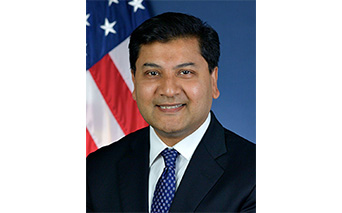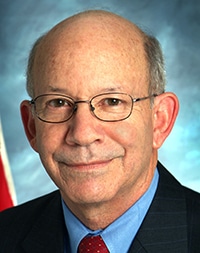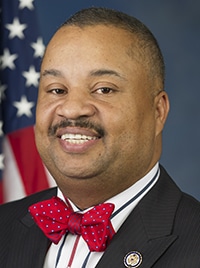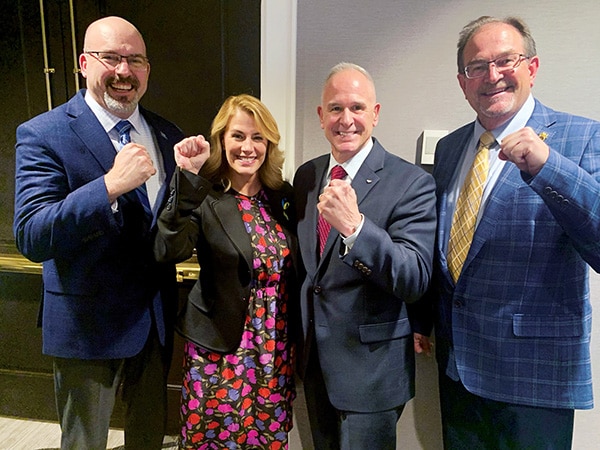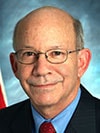The takeaway from a Washington Examiner article published Nov. 16 regarding recent supply-chain snarls is that rail labor’s desire to maintain the current standard level of personnel — a certified conductor and a certified engineer — aboard the monster freight trains brought by the rail industry’s Precision Scheduled Railroading (PSR) scheme will make things worse and that President Joe Biden is making a mistake by advocating for two-person crews.
The article sadly attempts to use an operational supply-chain disaster caused, in part, by voluntary decisions made by the rail bosses who implemented PSR as an opportunity to continue to attack the people who work for the seven Class I railroads in the U.S. and those who support them in the political arena. The labor of these workers resulted in the regular achievement by the nation’s biggest railroads of combined net earnings in the billions each quarter, even as the operational challenges implemented by profiteering rail executives in the form of PSR and a global pandemic mounted.
Not coincidentally, rail labor leaders are engaged in negotiations on a revised national railroad contract. During this process, we happen to be doing what unions do — protecting people, such as the public and the workers who do the job of keeping the nation and its freight moving, from the worst tendencies of corporate behavior.
The Examiner article is another example of a carrier-friendly perspective being trotted out by people who know no better about what has been going on in the railroad industry since the advent of PSR. Using archaic terms such as “featherbedding”, the piece portrayed unionized workers seeking to maintain the safe operating procedures in the industry as blockades to progress and profitability.
But this current profitable period for executives, hedge funds and shareholders has come at a cost, as we’re learning. Now that the U.S. supply chain is experiencing degradation in the system that has drawn headlines and the attention of Washington policymakers, PSR’s cost to the worker should be examined as many railroaders’ careers have become casualties of the greed-fueled quest for higher returns.
Since the late E. Hunter Harrison brought PSR to CSX in 2017, Surface Transportation Board (STB) rail employment data indicate that overall Class I employment was slashed by nearly 34,000 jobs from 149,323 in March 2017 until the spring of 2021. Train and engine personnel employment has gone down by about 12,000 jobs from 59,191 in March 2017. That’s 12,000 fewer people to keep the trains running because the rail bosses figured that they could just make the trains longer with their PSR scheme, mothball equipment and furlough workers — do more with less.
Operating ratio (a key metric used by shareholders) went down, causing share prices to go up and Wall Street hedge funds to profit. But the workload for workers has increased exponentially.
Railroad Retirement Board (RRB) data cited by AFL-CIO Transportation Trades Department President Greg Regan in his testimony Nov. 17 before the House Transportation and Infrastructure Committee show that approximately 7,200 employees voluntarily quit their jobs during the COVID-19 pandemic even after RRB had adjusted for retirements. Regan also noted that rail workers were moving the same amount of freight earlier this year that was moved in 2019, even though there are fewer people to do the work. Something had to break with carriers’ draconian attendance policies and punitive conduct toward workers. It did for some former railroaders, who instead chose to walk away from pensions and their health coverage and take their lives in a different direction.
Now, with the current backlog of containers at ports, railroads are scrambling to fill the positions and saying that there is a shortage of workers. But it takes time to train new people to work on the railroad. Much institutional knowledge was lost, and railroads consistently are ranked among the worst places to work, making recruitment in a competitive job market even more difficult.
The reality is the “precision” on the part of carriers in implementing PSR is the equivalent of a meat cleaver slamming into a slab of meat on a deli counter. Rail yards and shops closed, locomotives sold and idled and workforce reductions made to the detriment of service. It’s why the STB got involved months after Harrison began converting CSX to PSR and why the board, even during the Trump administration, required the Class I U.S. rail carriers who chose to follow Harrison’s plunge into PSR to report to the board. Railroads have made themselves less capable of adapting to an influx of business and now the supply chain has snarled.
And, to note, the life of someone who works on the railroad labor remains far from “scheduled,” visions of 1800s station agents with big watches on a long chain aside. There are no set shifts — only time periods after a 12-hour-shift where a train crew cannot be called in to work.
And “railroading”? Well, railroads are doing everything in their power to keep those share prices trending upwards for their big investors — running two-, three-, four-mile-long trains that, when a mechanical breakdown happens, bisect communities and don’t fit current infrastructure.
These decisions are not being made by the people who show up day and night to keep America’s trains running. Carrier spokespersons will mention nothing about how PSR has had a role in contributing to the supply-chain crisis. They, like the rail bosses, see workers as tally marks, disposable impediments to profitability — costs to be controlled. They’ll also try to deflect the pursuit of safety into a political attack as in the piece published before the House hearing.
The fact is, cost control, as enticing as it may be from a purely economic perspective, is not the sole driver of productivity. Productivity is not the sole determinant of profitability. The Examiner article’s argument that rail labor and President Biden’s pledge to support the current standard of rail personnel might contribute to the supply-chain problems PSR has fueled is farcical.
At some point, from an industry perspective, rather than cutting through bone to increase billions in quarterly profits, carriers could look at the way they approach service, safety and technology, maintain the extraordinary value they receive through the current dedicated workforce and collaborate with the people who got them through a pandemic on matters of safety. Then together, we can achieve a more precise, on-time vision of rail transport that is safer, more sustainable and more profitable than before.
